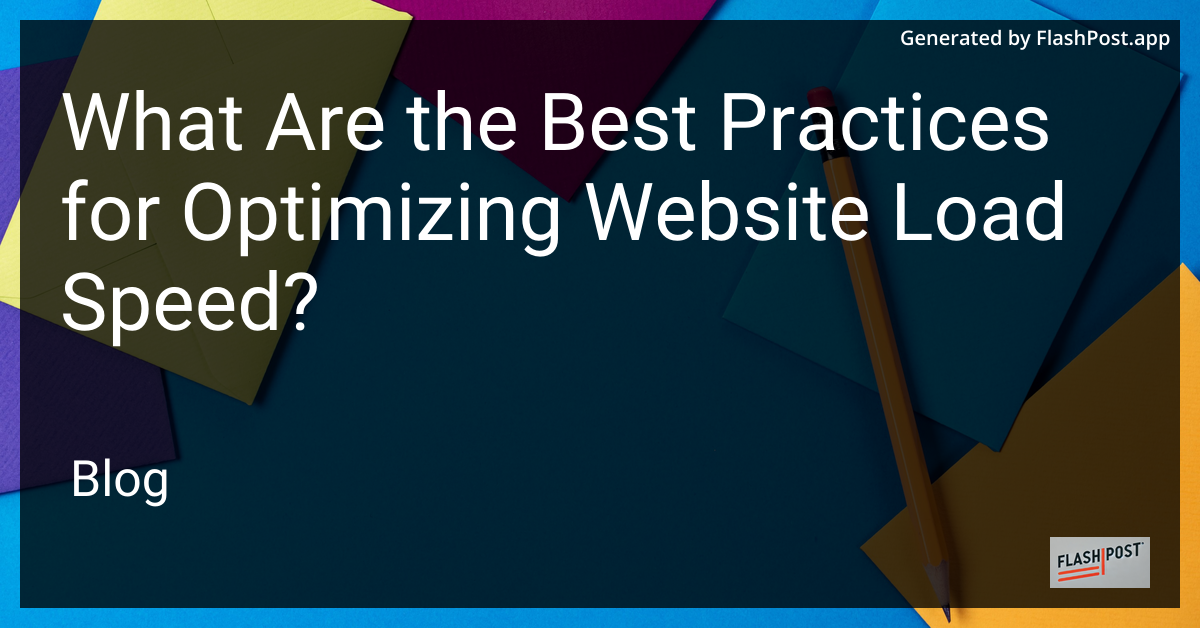
Best Practices for Optimizing Website Load Speed
Website load speed is a critical factor in ensuring a positive user experience and boosting your site's SEO. In today's fast-paced digital landscape, users expect web pages to load quickly. A delay of even a few seconds can significantly impact your site's bounce rate and conversion rates. Here, we will explore the best practices for optimizing website load speed.
1. Optimize Images
Large, uncompressed images can significantly slow down your website. Use tools to compress images without losing quality and consider using modern formats like WebP. Properly size your images to fit your website's layout.
2. Minimize HTTP Requests
The more HTTP requests your website makes, the longer it takes to load. Combine CSS and JavaScript files, and use CSS sprites to reduce the number of requests.
3. Implement Caching
Caching stores copies of your site's files, reducing the time it takes for pages to load. Implement browser caching to specify how long browsers should keep your assets locally.
4. Use a Content Delivery Network (CDN)
A CDN distributes your site's files across multiple servers around the world, ensuring faster load times for users regardless of their geographical location.
5. Optimize CSS and JavaScript
Remove unnecessary characters from your code, such as whitespaces and comments, and minify your CSS and JavaScript files. Additionally, defer JavaScript loading when appropriate.
6. Enable Compression
Use Gzip to compress your files before sending them over to the browser. This reduces the file size, leading to faster load times.
7. Reduce Server Response Time
The server response time should be under 200ms. Optimize your database queries and use more efficient server technologies to achieve this goal.
For more tips and techniques on website optimization, website optimization, website optimization, and website optimization, feel free to explore more.
By implementing these best practices, your website will not only load faster but will also offer a better user experience and rank higher in search engine results. Optimized load speed can be especially beneficial for ecommerce website optimization.